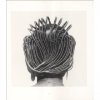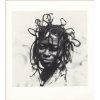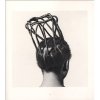infojunkie
Well-Known Member
I was all pumped up to get my hair threaded until I saw the post about only doing it on natural hair. I'm transitioning and most of my hair is still relaxed.
I had already started looking up instructions on how to teach myself to do this and anyone interested is welcome to the info:
http://www.amazon.com/Hair-Wraps-Klutz-Akers-Johnson/dp/1570541639
http://www.wikihow.com/Make-Hair-Wraps
http://www.klutz.com/catalog/product/1133
http://www.longhaircareforum.com/showthread.php?t=29941&page=6
Also and interested in the clay and the herbs to soak in.
I'd hate for this thread to get lost.
***o.k. back to Google***
I had already started looking up instructions on how to teach myself to do this and anyone interested is welcome to the info:
http://www.amazon.com/Hair-Wraps-Klutz-Akers-Johnson/dp/1570541639
http://www.wikihow.com/Make-Hair-Wraps
http://www.klutz.com/catalog/product/1133
http://www.longhaircareforum.com/showthread.php?t=29941&page=6
Also and interested in the clay and the herbs to soak in.
I'd hate for this thread to get lost.

***o.k. back to Google***











 I stopped using the black thread when i relaxed my hair in september 06. I almost mentioned it when i joined and didnt dare to say it, cause i thought that the ladies in here would think i was crazy.
I stopped using the black thread when i relaxed my hair in september 06. I almost mentioned it when i joined and didnt dare to say it, cause i thought that the ladies in here would think i was crazy. Sounds like this could be a cure for my single strand knots.
Sounds like this could be a cure for my single strand knots.